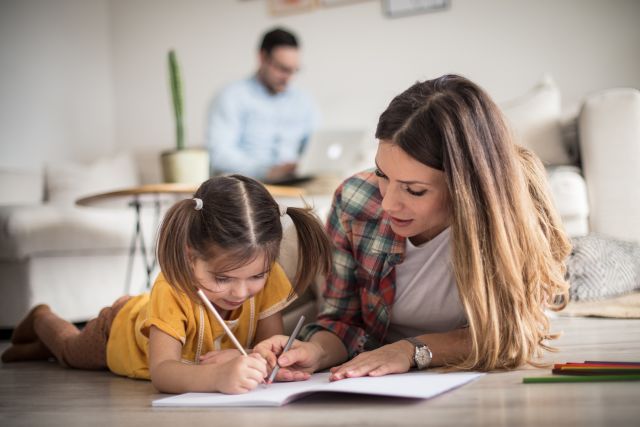Updated on April 1, 2020.
If you’ve been ordered to stay at home because of the COVID-19 pandemic, you’re not alone. As of April 6, 2020, at least 41 states and the District of Columbia have stay at home orders in effect to stop the spread of the virus, while four other states have regulations on a local level. Even if your state hasn’t taken action, your town, city or county might have their own rules and regulations.
Since each government mandate is slightly different, make sure you check to see how these rules are specifically applied where you live. Here’s what we know so far:
‘Stay at home; stay in place’
This is the most common type of order in place right now. Here’s what it means:
All non-essential businesses are closed. Only stores that are considered “life sustaining” are open. Those generally include:
- Grocery stores, farmer's markets, farms and other food stores like convenience stores
- Pharmacies
- Medical supply stores
- Gas stations
- Hardware and home improvement stores
- Banks and other financial institutions
- Laundromats and dry-cleaning services
- Printing and office supply shops
- Mail and delivery stores
- Medical marijuana dispensaries
State and local mandates vary on whether certain outlets are deemed essential. For example, liquor stores are open in most states, but as of March 26, 2020, Pennsylvania’s state-run liquor stores are closed. After its initial stay-at-home order, New Jersey added a number of stores to its open store list: mobile phone sales and repair shops, bike shops (only for repairs), livestock feed stores, nurseries and garden centers and farming equipment stores. Car dealerships also may be open, but only for repairs. In California, automotive and repair maintenance shops are considered essential.
Even though certain stores may be deemed “essential” and are still open to the public, it’s crucial to limit your trips outside the home as much as possible and to practice social distancing in all settings. If you can, buy groceries for a week or more and see if you can get a 90-day supply of any necessary prescription meds. Look to home delivery, too, but plan in advance; many services are experiencing delays due to the large numbers of people ordering.
Travel is limited. While residents can venture out of the house to buy food and medicine, to seek medical care or to travel to a job that is considered essential, all other travel is highly discouraged or prohibited. States generally make exceptions for visiting close family and romantic partners.
Restaurants may be open, but for take-out or pick up only. These restrictions ensure that people aren’t gathering closely in restaurant spaces, while allowing businesses to continue serving customers.
Non-essential gatherings are banned. Social interactions are generally limited to those with whom you are sheltering with, with exceptions made for taking care of sick family members or friends. Parties and gatherings of friends are prohibited—and some states have issued warnings that they will impose fines on anyone planning a large gathering during this time. In many states, weddings and funerals are limited to under ten people or completely banned.
Exercising outside is allowed. While gyms are closed, exercising outside is allowed, as long as it’s not a group or contact sport. Fitness activities should be done individually (or with people you live with), and at least six feet away from other individuals. Some popular outdoor spaces have been so crowded, however—like Runyon Canyon in Los Angeles and Valley Forge National Historic Park near Philadelphia—that they are being closed.
You’re fine to take your dog on a walk, just as long as you maintain a six-foot social distance from other people.
'Shelter in Place'
Shelter in Place, which went into effect in the San Francisco bay area on March 19, 2020, is similar to Stay at Home. New York Gov. Andrew Cuomo said he opted not to use “shelter in place” because the term may invoke panic.
‘Pause’
On March 22, New York State enacted “New York State on Pause,” an executive order from Governor Andrew Cuomo. Although the “pause” is essentially a shelter in place order, Cuomo said he opted not to use the shelter terminology because he felt it evokes panic.
A pause order is similar to stay at home and stay in place, but can be more strict. It requires open businesses to implement social distancing of at least six feet, often designating marks on the floors of establishments to better regulate separation of patrons in line for registers.
Public transit is still running but directs users to maintain a six-foot separation from each other. Those who are sick are required to stay home unless they need to receive in-person medical care, which is allowed only after a telehealth visit to determine if it’s essential for their health.







